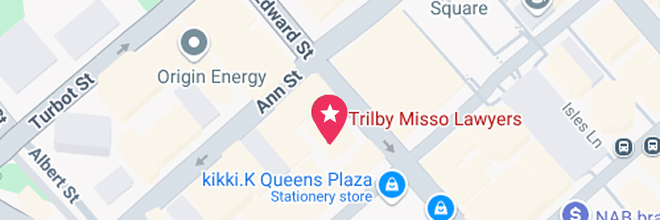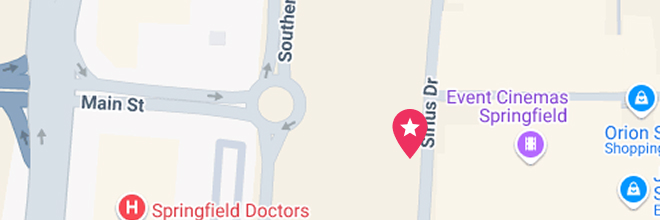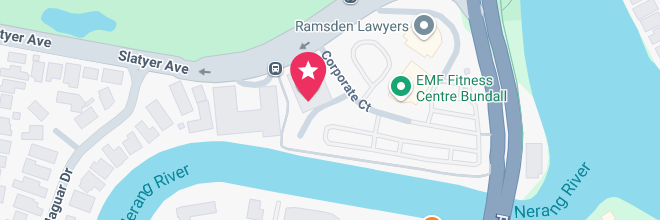How do I file a work injury claim?
If you sustain a work injury your first concern should be seeking appropriate medical treatment. For more serious injuries an ambulance may be called to the scene and for injuries that don’t require immediate intervention, you might make an appointment to see your local GP.
To file a work injury claim, we recommend you take the following steps:
- Report the injury – your employer may have procedures for reporting injuries and you should follow that process. In the absence of any formal reporting procedures, we recommend reporting the incident to your supervisor. If there is a written report, ask for a report for your own records.
- Witness details – if there were witnesses to the accident we recommend noting their contact details. Sometimes they aren’t required for 12 months, and it can be difficult to track people down if they change jobs.
- Work capacity certificate – you will need a work capacity certificate from your medical provider. A work capacity certificate is a type of medical certificate that sets out details of your work related injury, what treatment is recommended and whether you require time off work.
- WorkCover Application – WorkCover requires you to lodge a claim for statutory benefits. This can be done online or over the phone. This step is the actual filing of the work injury claim.
A work injury lawyer can always assist with these steps and guide you through the process.
What evidence do I need to support my work injury claim?
The legal system requires that you provide the evidence to prove all the aspects of your work injury claim. Anyone making a work injury claim will need to prove two things:
- Negligence – that is that the party they are claiming against was at fault, and
- Loss – that as a result of the accident they have suffered a loss.
The types of evidence to establish negligence and loss can include:
- Medical reports: Detailed medical records from your doctors, including diagnoses, treatment plans, and prognoses, are critical in proving the extent of your injuries.
- Incident reports: If the injury occurred at work, in a car accident, or in a public place, any official reports (such as a police report or workplace incident report) will be needed to establish what happened and who was at fault.
- Witness statements: Statements from people who witnessed the incident can provide valuable corroboration of your version of events.
- Financial records: To claim for lost wages, you’ll need to provide evidence of your income before and after the injury, as well as any financial losses you’ve incurred as a result of being unable to work.
- Expert testimony: In some cases, expert testimony may be required to prove liability or the extent of your injuries. This could involve medical experts, accident reconstruction specialists, or other professionals.
Your lawyer will work with you to gather and organise all the necessary evidence to support your work injury claim.
How long do I have to file a work injury claim?
There are important time limits you should be aware of if you want to file a work injury claim. If you fail to lodge a work injury claim within the timeframes it can result in your claim being denied.
The first type of benefits you may want to claim for a work injury are Statutory Benefits, by making this claim, you will have access to some short term help. If this claim is accepted you will be entitled to weekly payments if you are unable to work as well as the cost of any recommended medical treatment. It is a good idea to access these benefits as soon as possible so that you can minimise the financial stress of not working and access necessary medical treatment as soon as possible. This claim should be lodged within 6 months of the injury date.
If you are injured at work and your employer is at fault, you may consider making a common law work injury claim. A common law claim is a longer term solution where you are compensated financially to attempt to put you in the position you would have been in, had the accident not happened. There is a strict 3 year time limit for this type of claim.
If you want to file a work injury claim and believe you are outside the time limits, it is recommended you speak with a lawyer to check if anything can be done to protect your rights.
Can I claim compensation if the injury was partly my fault?
Where you might be partly at fault for a work injury, you may still be able to claim compensation for a work injury even if you were partly at fault. The fact you are partly at fault will not preclude you from making a claim for statutory WorkCover benefits, however it will be considered in a common law claim.
Fault in a Statutory work injury claim
Queensland operates under a no-fault Workers’ Compensation system, which means you can receive statutory WorkCover benefits, regardless of fault. Statutory benefits offer some excellent immediate, short term assistance like:
- Weekly benefits while you are unable to work; and
- Medical expenses.
Fault in a Common Law work injury claim
If you seek damages beyond the Statutory WorkCover benefits and make a common law claim, you must establish your employer is at fault. Your degree of fault may affect the compensation paid.
If you are found partly at fault, it won’t necessarily preclude you from making a claim. Being partly at fault is called “contributory negligence”. Any award of compensation would be reduced by the percentage you are found to have contributed. For example, if you are found to be 20% at fault, your compensation would be reduced by that percentage.
Consulting with a lawyer can help clarify your entitlements and the potential impact of shared fault on your work injury claim.
How is the compensation amount calculated for a work injury claim?
‘How much is my claim worth?’ is a very common and natural question to ask. How much compensation you will receive in a work injury claim will depend on careful assessment of your specific circumstances and the supporting evidence. Compensation in a Statutory work injury claim and a common law claim is calculated using a different methodology.
Compensation Amount in a work injury Statutory Claim
In a statutory work injury claim, wages and medical expenses are simply calculated. Any Lump Sum Offer of compensation is made on an assessment of the permanent impairment of the injury. WorkCover will refer to a scale that will calculate a Lump Sum Offer depending on the injury code and percentage of impairment. A Lump Sum offer is not calculated by looking at your specific circumstances and the impact of the injury on your life and ability to work.
Compensation Amount in a work injury Common Law Claim
Calculating the compensation amount in a work injury common law claim is an expert skill an injury lawyer will be highly trained in.
The lawyer will assess your claim and give you advice on the likely amount that would be awarded if you proceeded to trial before a Judge. In assessing the likely compensation amount, the evidence will be examined with the following in mind:
- Pain and Suffering – this is an amount of money to compensate you for the fact you have an injury and the impact that has on your enjoyment of life. This will be assessed looking at the nature of the injury and to what degree it is permanent.
- Medical Treatment – your medical expenses to date and predicted medical treatment for the future will be a sum that is included in any compensation amount.
- Lost income and superannuation – your lost income to date and also predicted lost income in the future is an amount that will be calculated and included in a compensation amount.
- Care and assistance – in some cases you can include a claim for assistance you have required as a result of the injuries sustained.
Accepting any offer of settlement has the consequence that your right to claim is over and you can not come back for further compensation at a later time. We strongly recommend you seek expert legal advice from a work injury lawyer before accepting any offer of settlement.
What should I do if my work injury claim is denied?
Approximately 95,000 of work injury claims are lodged each year and on average, 4% of those are denied. Approximately 3% of claims are reviewed and 59% of those uphold the initial decision to deny the claim, 41% are successful on review.
Common reasons for a work injury claim being denied are:
- The injured person was not considered to be a “worker” in the legal sense;
- The injury was not connected to work, or outside work hours;
- The injury was not reported to the employer;
- The claim was lodged outside the required timeframe being 6 months from the date of injury;
- The accident did not happen in Queensland;
- Where a psychological injury is sustained, it is common for WorkCover to establish that the employer took “reasonable management action” and deny the claim.
If your work injury claim is denied, there is a strict three month period to have the decision reviewed. Many workers do not have the decision reviewed or miss the three month period, even though they may have been successful on review. We recommend having the reasons for denial reviewed as soon as possible so that you can have the decision reviewed within the 3 month period.
What are my rights if my employer disputes my work injury claim?
When you lodge a work injury claim your employer may be contacted and asked to verify your employment, wages and the details of the work injury. If your employer dispute the facts, WorkCover will consider all the versions and available information before they make a decision to accept or reject your claim.
If your claim is rejected you may apply for a review of the decision. Your employer may apply for a review if the claim was accepted and they don’t agree.
We strongly recommend you seek legal advice if your employer disputes your work injury claim.
Can I file a work injury claim if I’m a contractor or casual worker?
To file a work claim and have it accepted, you will need to establish that you are a “worker” as defined by the Workers’ Compensation and Rehabilitation Act 2003 (Qld).
The issue of who is a worker has a large body of case law behind it that helps guide lawyers as to who will and won’t be defined as a worker.
If you are a casual employee, the casual nature of the work will not preclude you from being a “worker” and being able to file a work injury claim.
If you are a contractor and you have a work injury, we strongly recommend seeking legal advice as to whether you will meet the definition of “worker”. The specifics of your employment arrangement will need to be examined to be able to advise if you are able to file a work injury claim.
How do I know if my work injury is eligible for a claim?
Being eligible to make a work injury claim will depend on a number of factors and will vary depending on the type of work injury claim you are making.
Weekly benefits – in a work injury claim, you may be entitled to weekly benefits (statutory WorkCover claim). This will include weekly payments while you are unable to work as well as the funding of necessary medical treatment.
To be eligible to make this work injury claim, you will need to establish:
- You sustained an injury; and
- The injury was sustained in connection with your work.
Common Law Damages – in a work injury claim for common law damages (pain and suffering, lost wages, future lost wages and medical expenses), you will need to establish the following to be eligible to make a claim:
- You sustained an injury; and
- The injury was sustained in connection with your work;
- Your losses are as a result of that injury; and
- Your employer was negligent.
If you have sufficient evidence to satisfy the above you would be eligible to make a work injury claim.
What should I expect during the work injury claim process?
If you are injured at work and make a work injury claim, there are procedures in place which set out the process for WorkCover to manage your claim. Most work injury claims will follow this general process:
- Lodge claim for statutory benefits – This will involve, reporting the accident and visiting your medical treatment provider who will issue you with a work capacity certificate. WorkCover has a simple online process to apply for compensation and start the process.
- Receive treatment – If your claim for statutory benefits is accepted you will receive weekly compensation while you are unable to work as well as funding for medical treatment.
- Injury – once your injury has reached the maximum medical improvement, that is, you have had all available treatment and the injury has stabilised, WorkCover may initiate a process to have the injury assessed for permanent impairment.
- Lump Sum Offer – WorkCover may make you an offer of Lump Sum Compensation, this offer is calculated by reference to the injury and percentage of permanent impairment. It does not take into consideration your age, ability to work, future medical needs or the impact on your ability to work in the future. We strongly recommend seeking legal advice before you consider any Lump Sum Offer as in many cases accepting the offer means you forgo your right to make a common law claim.
- Common Law Claim Lodgement – Assuming fault can be alleged against the employer you may lodge a common law claim for damages. This claim will include a claim for pain and suffering, lost earnings, future lost earnings, and past and future medical expenses.
We recommend arranging an obligation free meeting with our team to discuss the process and to give a timeline specific to your work injury claim.
Page author
This page was written by Kathryn MacDonell, CEO at Trilby Misso Lawyers.
Kathryn’s journey in the legal field began in 2001 at Trilby Misso as an Article Clerk, leading to her official admission into the Supreme Court of Queensland in 2005. Her career at Trilby Misso saw her rise to the position of Principal Lawyer by 2011, where she was responsible for leading teams across the Sunshine Coast and Brisbane. Despite her management responsibilities, Kathryn remained dedicated to securing compensation for her clients, driven by a passion for assisting Queenslanders. Her legal acumen has been showcased in numerous challenging cases, with her making appearances in the District Court, Supreme Court, Court of Appeal, and even the High Court of Australia.
Here’s how our ‘no win no fee’ process works:
-
We chat
 It’s a free consultation.
It’s a free consultation. -
We meet
 A free detailed discussion.
A free detailed discussion. -
We plan
 You say ‘go’ – we build your case.
You say ‘go’ – we build your case. -
We lodge
 We present
We present
your case. -
We conclude
 We reach a settlement.
We reach a settlement.
You pay nothing until you win
We’ll also provide certainty and clarity, with a fair structure that has no ‘uplift’ fee, ever. You’ll pay nothing ‘til your claim is won.
Don’t delay. Speak with Trilby Misso today.
Your next step is a small one. All you need to do is give us a call on 07 3910 5470 or complete this form here to arrange a quick chat.
During this initial conversation, we will:
- Have a chat about the circumstances and nature of your injury.
- Give you an indication of your eligibility to make a claim for compensation.
- Explain, in simple terms, how our process works. We will answer
any questions you have about fees, the legal process, and anything else you’re unsure about relating to your injury.
We understand that taking legal action can be stressful, and we’ll do all we can to ease your concerns.
The chat can take place at our place, your place, or by phone. There is no cost, no pressure, and no obligation.







